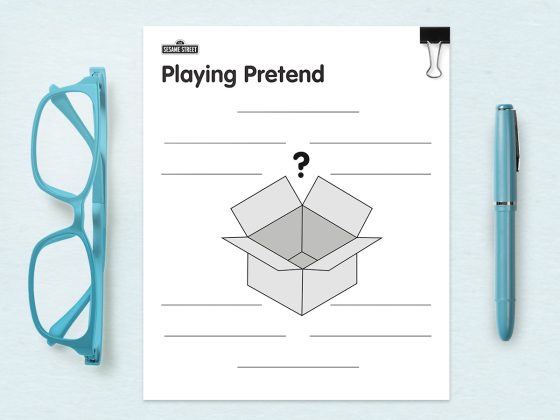
Playing Pretend
In this workshop, parents learn strategies to tune into their inner child and play pretend with kids at home.
Some parents love playing pretend with their child, while others have a harder time getting into character. In this activity, you’ll encourage parents to bring out their inner child and explore ways to engage in pretend play at home.
FIRST, begin a discussion about pretend and the benefits of play. Ask, “Why do you think pretend play is important?” and list responses on chart paper. Mention that pretend play helps children:
- Develop social emotional skills by playing different characters and “walking in someone else’s shoes.”
- Learn how to cooperate and take turns.
- Learn new vocabulary by exploring new situations and places.
- Practice problem-solving skills as they play in groups.
- Overcome fears by experiencing situations through pretend before they do so in the real world.
- Improve math skills as they experiment with numbers and shapes in situations like a pretend grocery store or school.
- Strengthen cognitive skills like planning, as they create characters, assign roles, and figure out context.
- Explore science concepts as they imagine extraordinary places and times, like outer space and lands of dinosaurs.
- Get creative!
NEXT, encourage parents and caregivers to share ways they “played pretend” when they were kids. Ask, “How is it similar to, or different from, how your child plays now?”
THEN, hand out copies of the Playing Pretend page. In small groups, parents can brainstorm different things a box can become, such as a pirate ship, space ship, or treasure chest, then draw (and make notes about) how they would help kids decorate the box to become any of these objects using everyday supplies such as markers and tape.
For instance, if they choose “airplane,” they’d make the flaps into wings, add construction paper squares on the sides for windows, and write the name of the “airline.” They can also draw a stack of handmade airline tickets next to the box.
LAST, have parents share their ideas with the group.
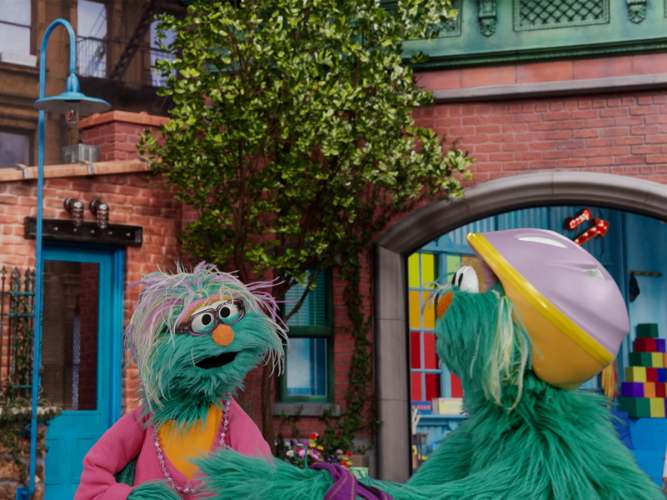
Parenting Moment: Describing
The way you talk with children matters! Your words have power.
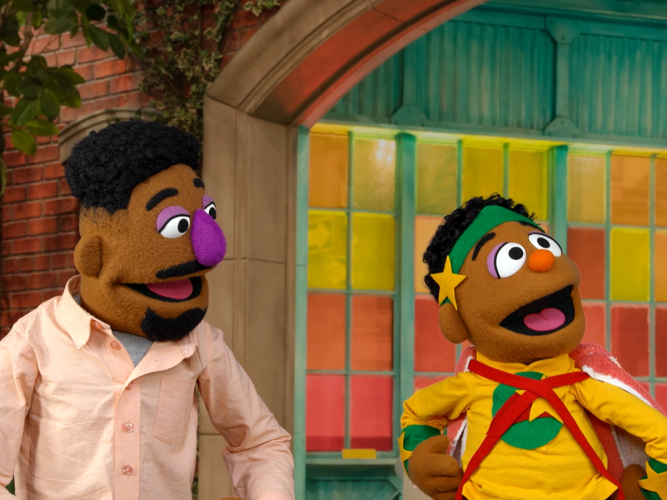
Parenting Moment: Imitating
Playing is learning! The way you play with children matters… your actions and words have power.
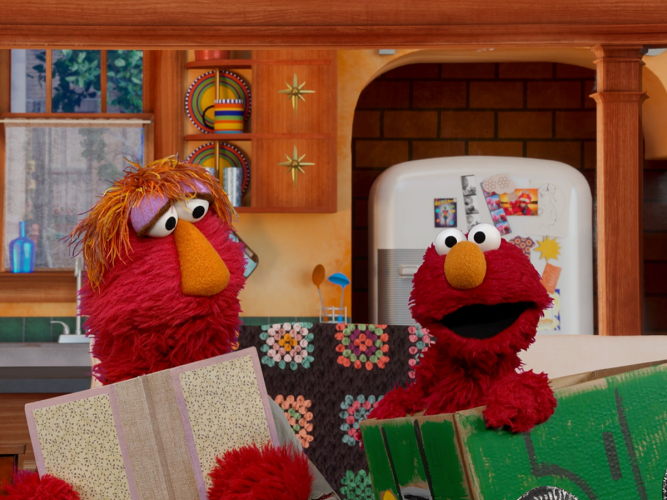
Parenting Moment: Reflecting
The way you talk with children matters… your words have power!
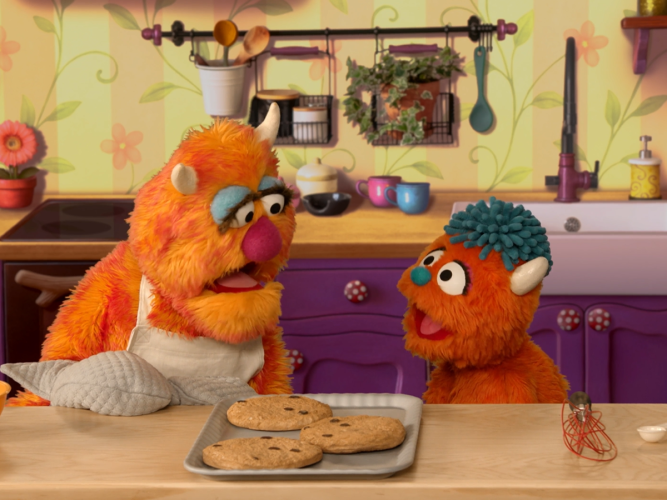
Parenting Moment: Enjoying!
Showing you enjoy your time together with your child builds your special bond. And when you’re being positive, your little one is more likely to do the same.

The Power of Following Children’s Lead
Joining children in their play offers so many opportunities to encourage, communicate, bond, spark and share joy, teach, show warmth and kindness, and help them thrive.
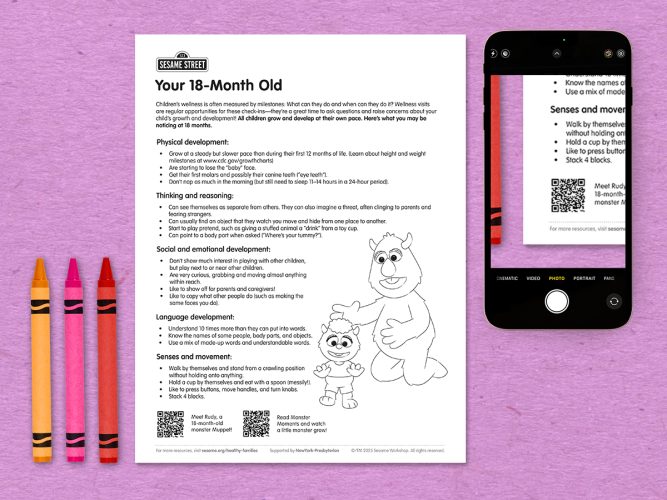
Milestones: Your 18-Month Old
All children grow and develop at their own pace; use this chart to guide your expectations and observations so you can talk to your child’s pediatrician about questions or concerns.
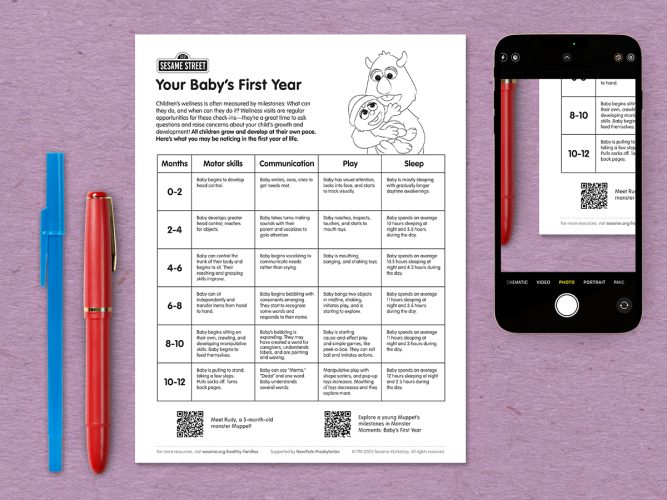
Milestones: Your Baby’s First Year
All children grow and develop at their own pace; use this chart to guide your expectations and observations so you can talk to your child’s pediatrician about questions or concerns.
